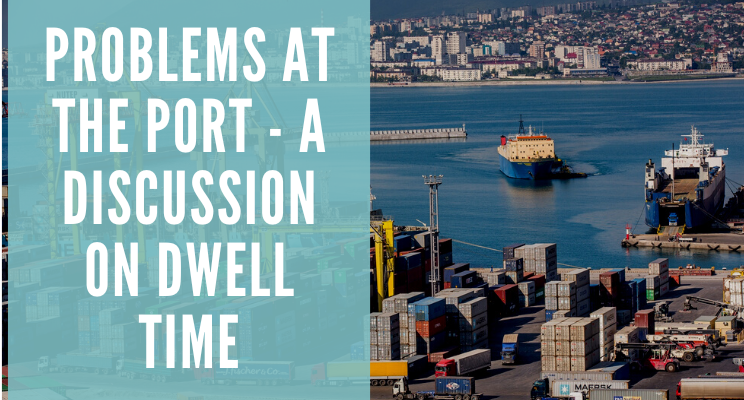
Problems at the Port – A Discussion on Dwell Time
Early return dates (ERDs) can give anyone the chills. For example, imagine you just successfully finished a grueling negotiation to deliver a large shipment to an overseas buyer. Your company organized a trucking company to transport goods to the port over the next week. You even paid for the storage costs of your goods before they get loaded onto your vessel.
But as soon as all this was finalized, you were told your early return date (ERD) shrunk from a week to only 2 days. Sound familiar?
The unfortunate reality is that situations like this happen far too regularly. Suddenly, all your careful planning is for nothing, and you face extra costs at every turn. The ERD nightmare is real.
There is no easy fix to problems stemming from changes in ERDs. It is an industry-wide problem that plagues all shippers and is the source of many sleepless nights for shipping coordinators.
What can you do to manage the risks of changes to ERDs better?
What Is ERD?
An early return date (ERD) is a policy introduced to help manage the flow of export containers into ports to reduce congestion. Problems arise because ERDs change far too frequently. And the worst part is that ERDs change with almost no advanced notice for shippers.
ERDs- A Multi-Layered Challenge for Ocean Exports
The importance of ERDs for shippers is that they need to make sure their containers don’t arrive too early at ports. Otherwise, they face demurrage penalties, storage fees, chassis rental costs, and other charges. But if their containers arrive late, their cargo may miss the opportunity to get loaded onto the vessel.
This balancing act isn’t always easy. During the pandemic, more than one-quarter of shippers reported that they experienced ERD changes, with about 7% reporting that these changes cost them $1000 or more.
What compounds these difficulties is that many ocean carriers reduce sailings in response to the negative economic impacts of events like Covid-19 and the Ukraine conflict. The net result is that companies looking to transport goods experience even greater headaches.
The worst part is that ERDs can, and all too often, change with little notice. Almost always, these schedule changes cost shippers more money. When profit margins are already tight, these unexpected charges can cause many sleepless nights.
So, in the face of such a tumultuous environment, how can shippers manage these risks and better operate under the constraints of ERD?
Hope for the Future
OL USA strives to help eliminate problems in global trade. We know the challenges you face and the hardships brought about by changes in ERDs.
OL USA is dedicated to transparency through the use of our proprietary track and trace system. We are a full-service transportation partner that can help your business face challenges in transporting goods worldwide.
And there are other reasons for optimism moving forward. Governments in the U.S. and worldwide have responded to the surge in shipping by addressing industry shortcomings. And the scope of financial resources made available with the surge in shipping activity means that there are powerful incentives in place to improve the current system.
With advances in technology and the surge in stakeholder interest in creating a more efficient flow of goods, ERD nightmares can soon become a thing of the past.
Together We Can Succeed
We all know the importance of providing goods and services to markets around the world. It is in everyone’s best interest to work together to find workable solutions to today’s problems.
So don’t worry. We’re all in this together.
Follow us on social media to stay updated on our latest efforts.
Email Copy Add-On:
An early return date (ERD) is a policy introduced to help manage the flow of export containers into ports to reduce congestion. Problems arise because ERDs change far too frequently. And the worst part is that ERDs change with almost no notice for shippers. But OL USA can help.



